How to open a bank account in Brazil as a foreigner: US guide
Learn all about opening a bank account in Brazil as an American, including costs, requirements, and alternatives.

With a vibrant and diverse culture, jaw dropping natural wonders, fun filled festivals and friendly people, it’s no wonder Brazil is a popular expat destination. Whether you’re moving to boost your career, looking to explore a new city and country, or heading to Brazil for studies, you’re in for an epic adventure.
This guide runs through all you need to know about moving to Brazil from the USA. We’ll cover the practicalities of life in Brazil, the costs of living to prepare for, and where you might choose to live. To help you save money when you live, work or study abroad, we’ll also touch on Wise low cost international transfers — the faster, cheaper and more convenient way to get your money moving.
| Capital | Brasília |
| Language | Portuguese |
| Population | 212 million |
| Currency | Brazilian Real (BRL or R$) |
| Government type | Federal republic |
| Religion | Predominantly Catholic |
| Weather | Mainly tropical or subtropical, with a temperate area in the south |
|
|---|

Yes. You can move to Brazil from the US as long as you have the correct visa in place.
While US citizens don’t need a visa to enter Brazil for tourism or short term business trips, if you intend to establish residence in Brazil you’ll need to get your visa arranged in advance¹. You can do this through your closest Brazilian consulate. Full listings of the types of visa that are available can be found online — we’ll also touch on your options in a little more detail later.
Brazil can be a great place to live with your family. In Brazilian culture, families are typically close-knit, with multiple generations living together or relatively close to each other where possible.
There’s plenty for kids to do, fun travel opportunities, and there are a range of great international schools in the major cities if you’d like your children to follow the US curriculum. The main downside is probably travel time back to the US when you want to visit family and friends back home.
One important point to note about moving to Brazil with family is that under Brazilian law, any children holding a Brazilian passport must have permission from both parents to leave the country. If your child is traveling with only one parent, written permission from the other parent is required.
These rules don’t technically apply to children holding foreign passports — but there have been cases of families running into delays and complications on the border when trying to travel without both parents present².
You can move to Brazil with a cat or dog without needing a specific import permit. Other animals require advance permission to enter the country. Full requirements for all animals include an International Veterinary Certificate or approved Pet Passport and rabies vaccination³.
The costs of your life in Brazil will depend a lot on where you choose to call home, how you like to spend your time, and your personal preferences. Overall costs of living in Brazil can be lower than in the USA, with life in smaller towns and rural areas cheaper than in the major cities. Let’s take a look at a few countries' average costs to build a picture. We’ll look at some popular expat destinations in Brazil a little later.
| Item/Service | Average cost in Brazil⁴ |
|---|---|
| Meal at an inexpensive restaurant | 5.28 USD |
| 3 course meal for 2, mid-range restaurant | 25.32 USD |
| 1 month travel pass | 45.16 USD |
| Rent 1 bed apartment in city center | 302.86 USD /month |
| Rent 1 bed apartment outside of city center | 198.39 USD/month |
Once you’ve established a basic budget for daily life in Brazil, you’ll need to plan for one off costs involved with the more itself.
The cost of moving to Brazil will vary depending on how you make your arrangements and exactly where you’re coming from. However, some key items to factor in include:
|
|---|
Moving to Brazil probably means you’ll need to take more than just your suitcase. However, shipping your entire household can be expensive and time consuming. Many people choose to sell or offload a lot of their larger items before making the move, keeping things simple to cut the overall costs.
The easiest way to start once you know where in Brazil you’re moving to, is to get online quotes from several moving companies. You’ll be able to generate estimates based on the size of home you’re moving from, to give you a basic idea of the fees to send all your stuff. As an example, moving from Miami to São Paulo is estimated to cost around 3,500 - 4,000 USD⁵.
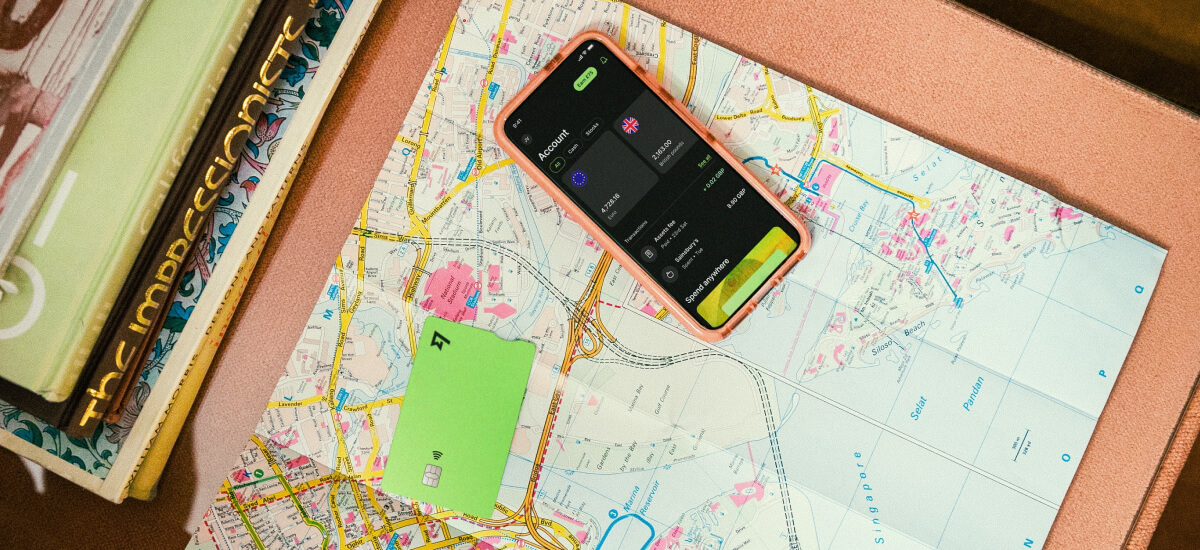
If you’re moving to Brazil you’ll need simple, cheap ways to pay for your shipping, cover a rental deposit, and manage your daily life using reais. Cut the costs of currency exchange and sending money to Brazil with Wise.
Wise international transfers are fast, secure, and could save you 3x compared to sending with your bank.
Transfers always use the mid-market exchange rate, low, transparent fees, and you can get started online or in the Wise app for convenience.
Please see Terms of Use for your region or visit Wise Fees & Pricing for the most up to date pricing and fee information
Let’s look at some practicalities of moving to Brazil. We’ll dive right into what it’s like to live and work there, and get into the details of some dream destinations in just a moment.
Housing is always going to be a major budget item, no matter where in the world you choose to live. And like everywhere else, the costs of accommodation in Brazil can vary a lot depending on where you want to live and the type of home you’d prefer. On average, though, accommodation in Brazil is cheaper than in the US, and there’s a good range of options for every price point.
The costs of renting a place in Brazil can vary enormously based on where you choose to live. The biggest cities and financial hubs — like São Paulo for example — can be pricey compared to smaller cities, and even the capital Brasilia.
Average rental prices for a one bedroom apartment in the city center in Brasilia are around 375 USD/month — in São Paulo you’ll pay over 500 USD on average⁶. It’s worth noting you can bring down the costs of rent b y looking outside the center, or choosing a smaller city like Curitiba instead.
To get your rental set up you’ll almost always need proof of income. If you’re moving to Brazil for work you’ll probably need to get temporary accommodation set up at first, to give you time to get all the paperwork together to arrange your longer term rental agreement.
There are a few restrictions on foreigners buying beachfront and rural properties in Brazil — but outside of these rules, you’ll be free to buy a home in Brazil if you’d like to.
The only specific requirement is that you’ll need to have a CPF number, which requires you to register with the Brazilian authorities. This is a tax registration number which allows you to legally own the property — you can get a CPF in Brazil or through a Brazilian embassy abroad.
Brazilian citizens and legal residents can access free public healthcare. However, it’s important to know that services can be underfunded in some areas which may mean delays for treatment.
It’s very common to have private healthcare cover in addition, to make sure you can always access the care you need when you need it. Private healthcare in Brazil is relatively expensive, but considered to be of very high quality.
Brazil has a developed banking system with a good range of accounts available. It’s common to need your CPF number before you can get your account open, which will usually mean you can’t open a Brazilian bank account until you’ve arrived in the country.
Personal income tax in Brazil is managed on a progressive system, with rates running from 7.5% to 27.5%⁷.
| 💰 Get a Wise Account to move and manage your money internationally |
|---|
|
Create a Wise account in minutes
Please see Terms of Use for your region or visit Wise Fees & Pricing for the most up to date pricing and fee information
The school year in Brazil usually runs from February through to December, with main holidays in July and January. Public schools in Brazil are free, but the quality can vary significantly.
That means that most expats in Brazil send their kids to private or international schools, which may include schools running the US curriculum and exam frameworks.
If you’re in a major city in Brazil you’ll usually find there’s a decent public transportation network including buses and often a metro. While many expats do choose to drive — or have a personal driver — congestion in the city centers can be frustrating and lead to long commute times.
It’s worth considering the journeys you’ll need to make regularly when you choose accommodation — being close to your school or work will always be a bonus.
Expats living in Brazil tend to have a good quality of life. However, it’s worth knowing that high levels of income inequality in Brazil does mean that some populations rank poorly on quality of life scores⁸.
Expats who have already made the leap to live in Brazil report enjoying life thanks to friendly locals and an active expat community, great places to travel and explore, vibrant festivals and plenty of cultural activities to get involved in.
Brazil is commonly described as a cultural melting pot, which leads to high levels of diversity with traditional and more recent festivals, celebrations and customs all marked. Modern Brazilian culture has elements derived from Portuguese colonization, with influences from indigenous cultures and multiple waves of migrants over the years.
Generally Brazilian people are considered to be friendly and welcoming. People are sociable and like to spend time together, eating and hanging out.
The State Department warns that crime — including violent crime — rates in Brazil are high in most big cities in Brazil.
That means you need to exercise caution and remain aware of your surroundings at all times. There are also some areas which the State Department advises against traveling to, including favelas, border regions and rural areas after dark⁹.
Most people traveling to Brazil have a completely trouble free time — but as with anywhere, there are risks which you’ll want to be aware of. Read up on recent travel advice before you move to Brazil, and get to know which areas are safe in your local area.
As a US citizen you won’t need a visa to enter Brazil for a short trip. However, if you intend to establish residency you’ll need to apply for a visa based on your intended activities. The relevant visas are likely to be VITEM type visas, which cover work, study, investment, volunteering and other activities you might get involved with in Brazil.
Each visa type has its own requirements — as an example, if you’re applying for the VITEM V Visa which covers people who want to work in Brazil you’ll need to have a job lined up before you get started. Your employer will have to apply for your residence permit through the Ministry of Labor, and once this has been approved you can submit your application to the Brazilian consulate closest to your home.
| 🎯 You’ll need to provide¹⁰ |
|---|
|
There are a number of different routes to get Brazilian permanent residency (known as a permanent visa — VIPER for short). You may be eligible if¹¹:
- An immediate family member is a Brazilian citizen
- You’ll be working as a manager or executive in Brazil
- You’ve invested in Brazil
- You're retiring to Brazil
- You’re considered to be a person of extraordinary ability in your field
Permanent residency based on family ties may be arranged before you move to Brazil. However, for all other reasons you’ll usually need to have lived in Brazil for a year before you can make your application.
Hopefully you’re getting excited about moving to Brazil from the US now — let’s take a closer look at a few popular expat destinations.
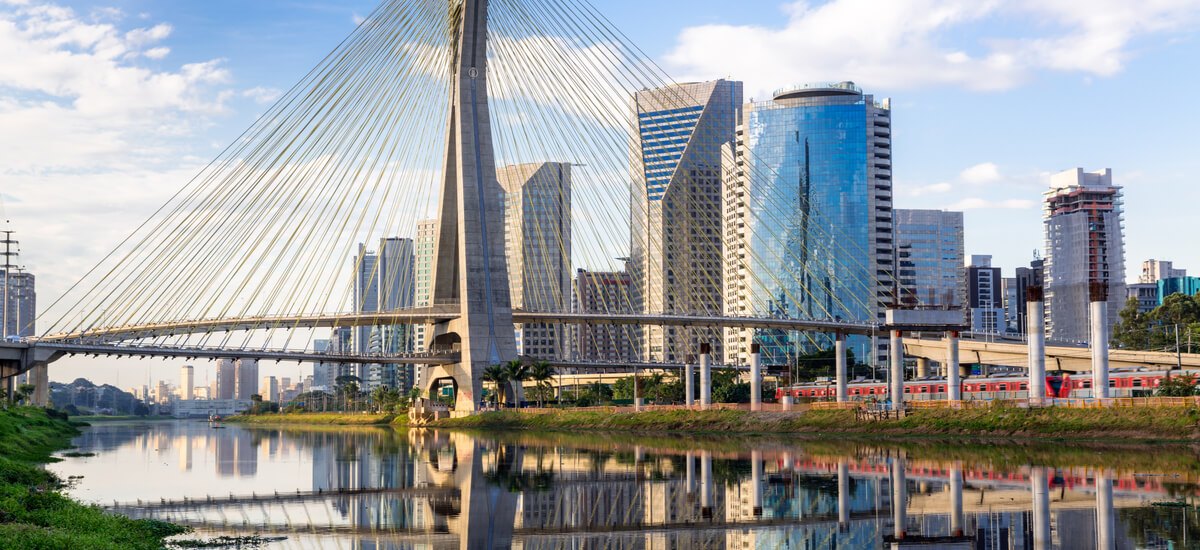
São Paulo is the financial capital of Brazil, and a great place for people moving to Brazil for work. As well as some great career opportunities, it’s a fun city with great entertainment, places to eat and drink, and decent infrastructure.
It’s also one of the most expensive places in the country. Renting a one bed apartment will cost on average about 500 USD a month in the city center with significantly higher costs for some places, although you can cut the costs to around 300 USD a month by looking outside of the center.
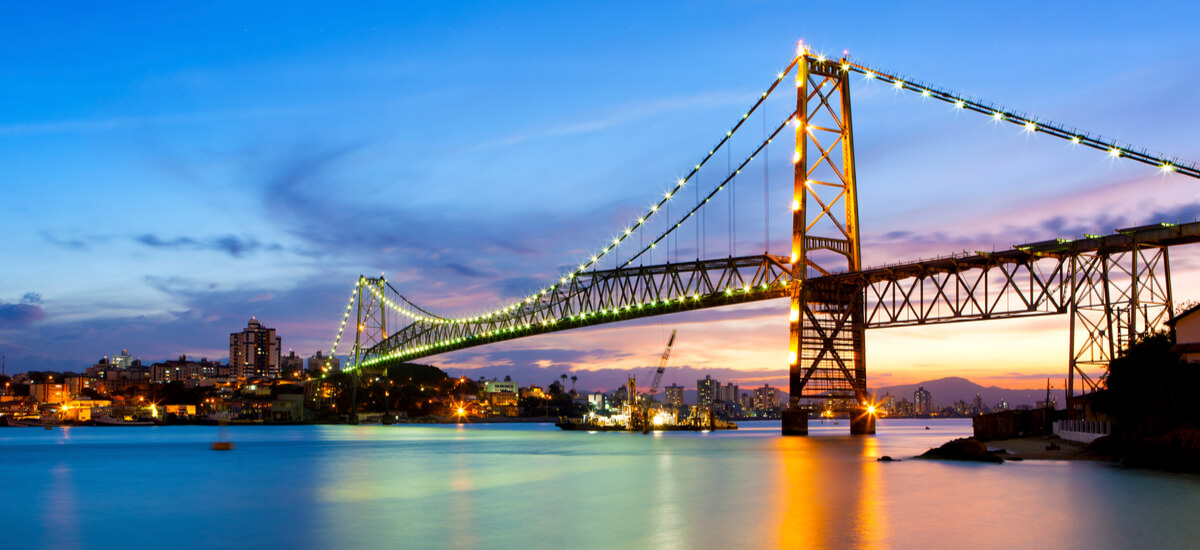
Beaches, watersports and great weather are what bring many tourists to Florianópolis — and something you’ll get to experience plenty of if you choose to live there permanently. The opportunities for time outdoors and fun activities make this a popular pick for people moving to Brazil with family especially.

Curitiba is known as a city of the arts, with venues like the Botanical Garden and the Oscar Niemeyer Museum — which hosts a variety of national and international art exhibits. It’s a relatively small city by Brazilian standards, making it a fairly easy place to live and navigate.
Rental prices in Curitiba are much lower than in some other major cities — you’ll pay around 300 USD a month for a one bed apartment in the center, compared to 400 USD a month in Florianópolis for example¹².
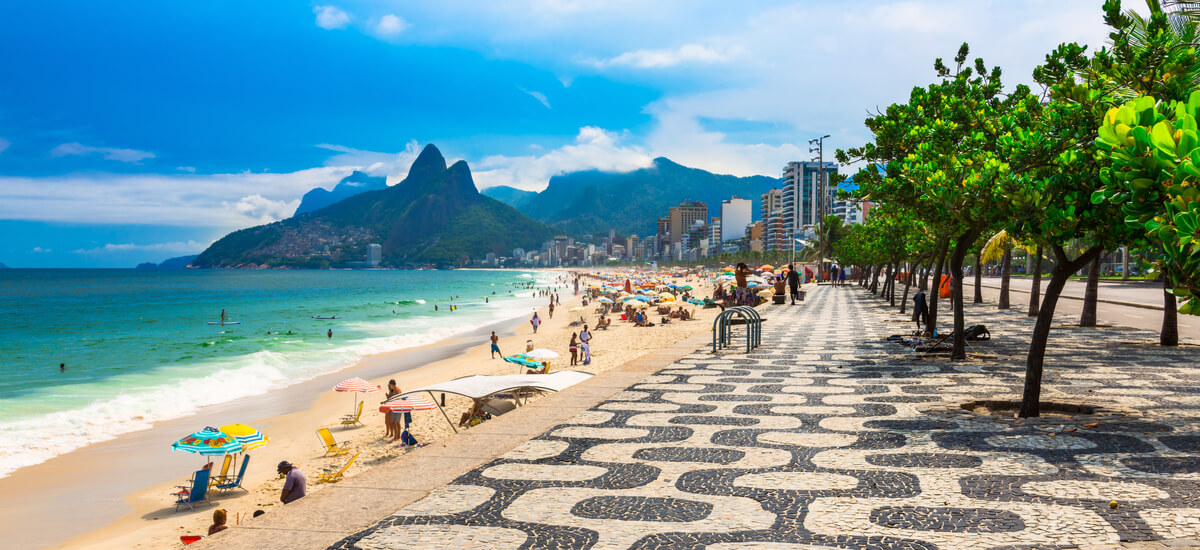
Rio de Janeiro is another top pick — especially for people moving to Brazil for work. It’s a colorful place with a very rich and diverse culture, great beaches and facilities for outdoor activities.
As a large city there are plenty of choices for accommodation and schools, making it easy to settle in — but be warned, it can be expensive!
Moving to Brazil from the USA is a big decision. However, if you’re looking for an adventure you’ll love the chance to learn about a new place, meet friendly people, and explore a different culture. Remember these key steps to make sure everything goes smoothly — and good luck!
Sources:
Sources checked on 03.28.2022
*Please see terms of use and product availability for your region or visit Wise fees and pricing for the most up to date pricing and fee information.
This publication is provided for general information purposes and does not constitute legal, tax or other professional advice from Wise Payments Limited or its subsidiaries and its affiliates, and it is not intended as a substitute for obtaining advice from a financial advisor or any other professional.
We make no representations, warranties or guarantees, whether expressed or implied, that the content in the publication is accurate, complete or up to date.

Learn all about opening a bank account in Brazil as an American, including costs, requirements, and alternatives.
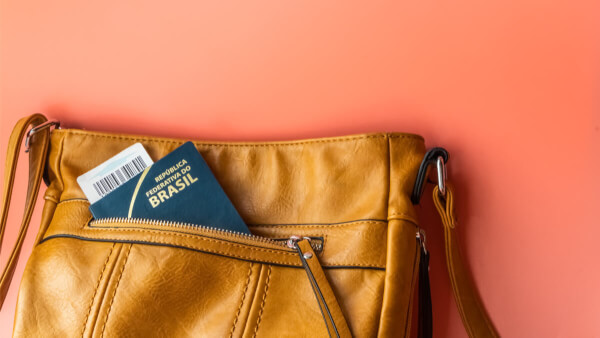
Discover the different ways to acquire Brazilian citizenship, including by descent, marriage, naturalization, and residency. Uncover the benefits and responsibi

Discover what it costs to live in Brazil, from housing and groceries to healthcare and transportation. Compare the cost of living across different cities.

If you’re one of the many people considering a new life as an expat in Brazil, you’ll need a CPF number.

Let’s face it, Brazil isn’t known for their world class education system. Ranked #32 in the world for their schools, the South American country has faced a...

Brazil is the largest country in South America, but most of the nation’s population lives in cities. In fact, about 82 of every 100 Brazilians reside in urban...